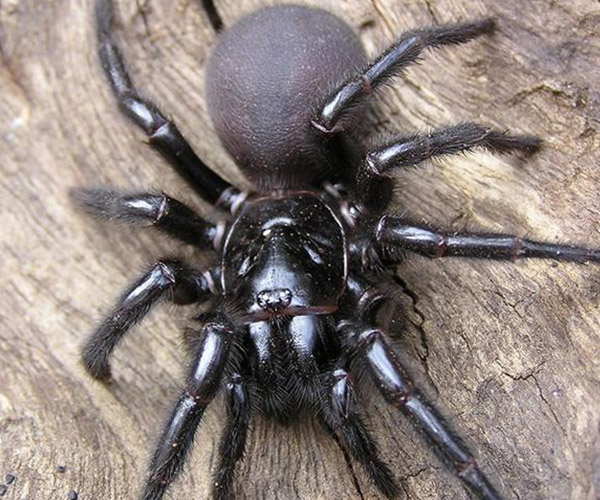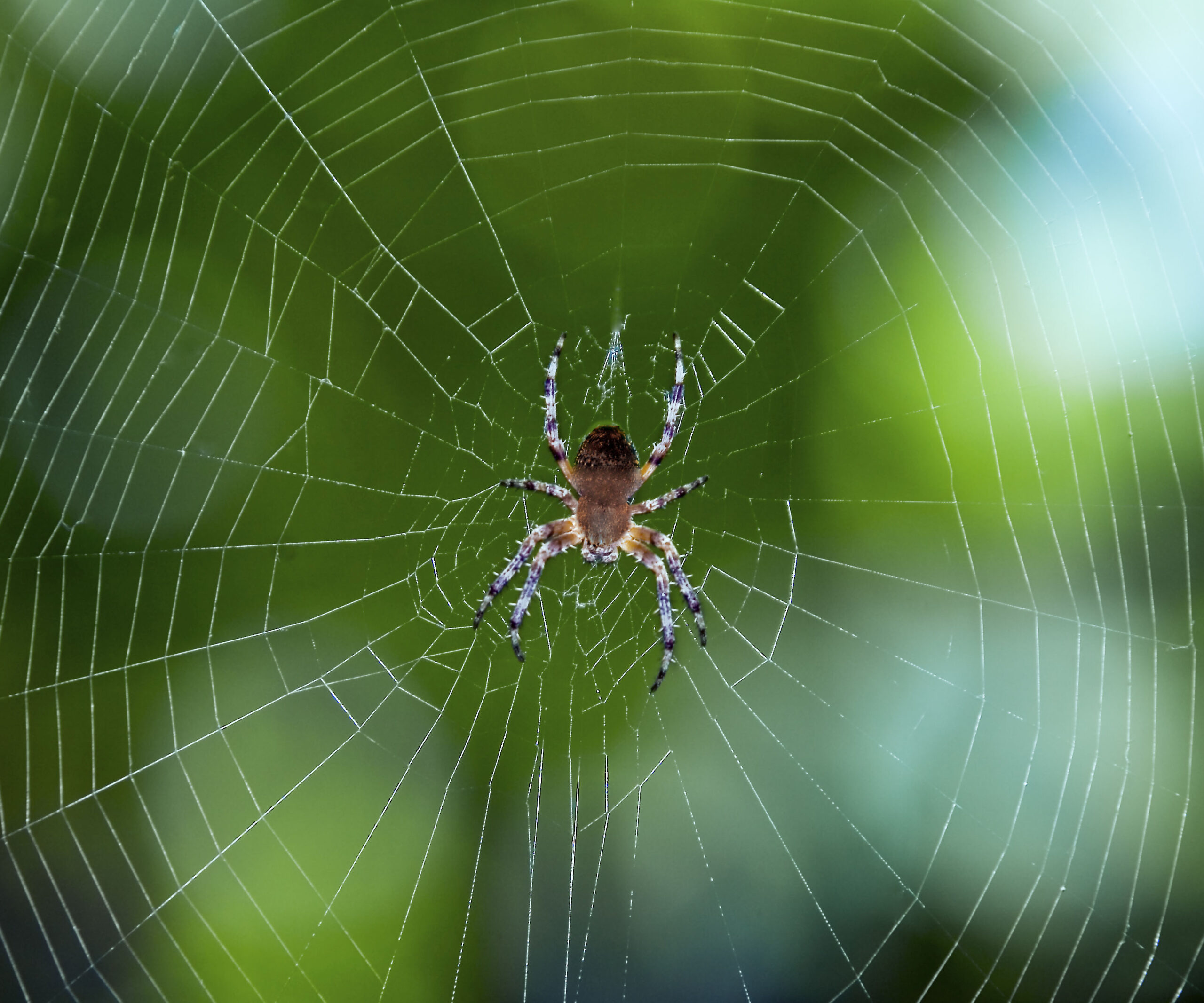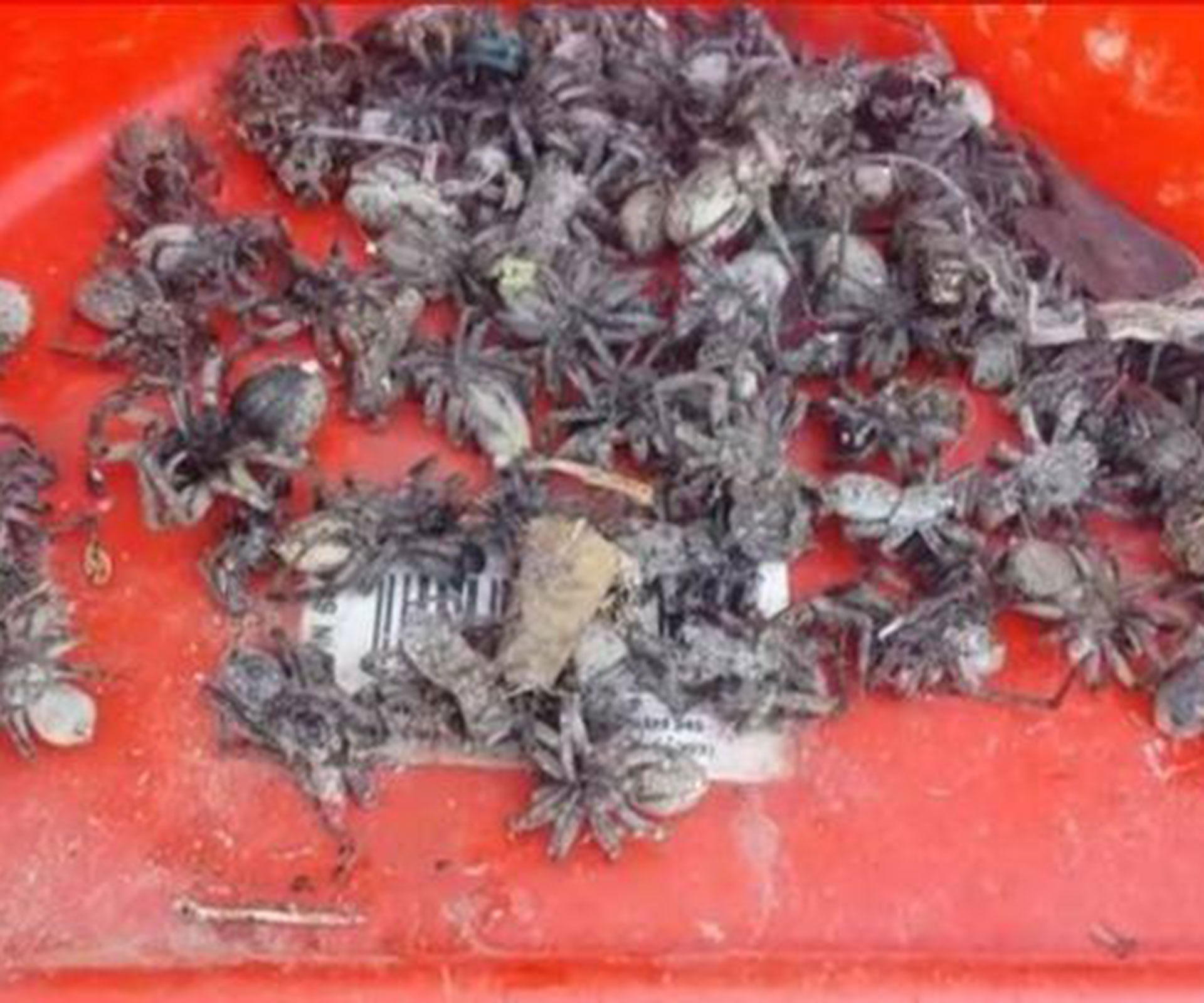Have you felt an inexplicable sense of dread recently? Knowledge that something’s in the air but you’re not quite sure what it is?
Well my friends, that’s because spider season is upon us and the world’s deadliest spider could be crawling into your home in droves this Christmas.
WATCH: Utterly horrific footage of a spider egg bursting. You’ve been warned.
Funnel-web spiders are highly venomous and could kill you in as little as 15 minutes, so that’s reassuring.
They love to lurk in cool, damp place – like your shower – and mating season could push them inside.
On the plus (?) side, you’ll know pretty quickly you’ve been bitten so you can rush to the hospital.

“If you do get bitten you will feel the effects very quickly, it can make you very, very sick,” Paul Hare, Invertebrate Keeper at Taronga Zoo, told news.com.au.
“Chances are you’ll know you’ve been bitten, they’ve got big fangs and you’ll feel the bite.”
Symptoms include profuse sweating, muscle twitching, nausea, and numbness around the mouth.
And despite their reputation as the deadliest spider, the Australian Museum has recorded 13 deaths in Australia, Mr Hare told news.com.au they’re more defensive than aggressive.

“At the end of the day we are too big to be a food item for them. The only reason you’re bitten is if a spider feels threatened.
“Admittedly you might come across one that’s having a bad day but in my experience they’re not what they’re made out to be.”
However, probably don’t stick your hand down any drain pipes because that’s where many venomous spiders live – funnel-web spiders love water and can survive submerged for several hours, including at the bottom of the pool.
Try to not kill the little guys because, aside from playing an important part in their ecosystem, their venom could lead to a world-first treatment for brain damage caused by stroke, according to a study released earlier this year.
“We believe that we have, for the first time, found a way to minimise the effects of brain damage after a stroke,” Professor Glenn King, from the UQ Institute for Molecular Bioscience told the AAP.
“This world-first discovery will help us provide better outcomes for stroke survivors by limiting the brain damage and disability caused by this devastating injury.”

